detail profile paco catal c3 a1
Peran Yang Di Mainkan Paco Catalá
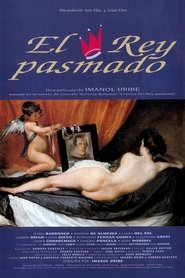 Spain under Philip IV 16211665 The film...
Spain under Philip IV 16211665 The film...The Dumbfounded King 1991
Spain, under Philip IV (1621-1665). The film is based on a novel by Gonzalo Torrente Ballester. The King is stunned to see the naked body of Marfisa, the most beautiful prostitute of the town and Court. After that, he also wants to see the Queen naked. However, the King, despite the opposition and the scandal of the Church, will not stop until he reaches his wishes.
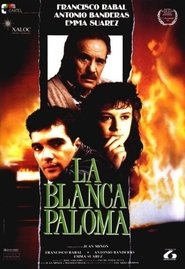 The story unfolds in Bilbao Roco...
The story unfolds in Bilbao Roco...The White Dove 1989
The story unfolds in Bilbao. Rocío (Emma Suárez), is in love with Mario (Antonio Banderas), a free rider with a lot of face that, to top it all, is partner of the business of her father, Domingo (Francisco Rabal) with whom she maintains incestuous relations. When Domingo passes away, both Mario and Rocío's mother have to put to the front of the business, finishing with the inheritance that could receive Rocío. In the midst of her frustration, a young business worker, secretly in love with Rocío, will try to have the legacy of her father end up in the hands of his rightful heiress.
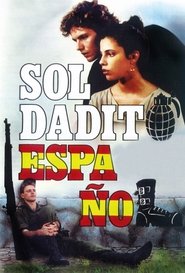 A young man son and grandson...
A young man son and grandson...Little Spanish Soldier 1988
A young man, son and grandson of soldiers, refuses to perform military service, causing a commotion in the whole family. Finally, social, environmental and family pressures, will force the young to make a decision that will have unforeseeable consequences.
 In Spain of the 1960s a...
In Spain of the 1960s a...Lute: Forge On or Die 1987
In Spain of the 1960s, a poor family of quinquis - a nomadic ethnic group with a tradition as old as that of the gypsises of Spain but with even more obscure origins - have a nomadic life marked by poverty. The son, Eleuterio Sánchez Rodriguez, nicknamed "El Lute", steals some chickens and is condemned to six months in jail. El Lute moves to the slum outskirts of Madrid with his common law wife, Chelo, starting an itinerant life as a peddler of pots and pans and living in a quinqui shantytown. He gradually embarks upon as life of petty criminality, eventually participating in the theft of a jewelry store during which a bystander is killed.
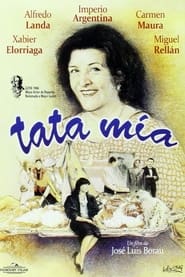 Elvira daughter of a disgraced military...
Elvira daughter of a disgraced military...Tata Mía 1986
Elvira, daughter of a disgraced military, who entered a convent at a young age leaves him and returns home to settle in Madrid with his beloved nanny, seeking help to overcome their crisis. However, the country has changed so much in his years of confinement that has little or nothing to do with his childhood memories ...
 A medieval alchemist Klaus Kinski knight...
A medieval alchemist Klaus Kinski knight...Star Knight 1985
A medieval alchemist (Klaus Kinski), knight (Harvey Keitel) and priest (Fernando Rey) mistake a flying-saucer alien for a dragon.
 Cesar and Isabel just got married...
Cesar and Isabel just got married...Caso cerrado 1985
Cesar and Isabel just got married for the Jewish rite, their religion. He is a director of a banking company. She works in a bookstore owned by her mother-in-law. The couple sees their happiness truncated when César discovers financial anomalies in the entity where he works. What were initially charges against some managers, becomes an accusation of embezzlement against César, who is in France to prevent his entry into military service. Go back and appear before the judge to prove his innocence.
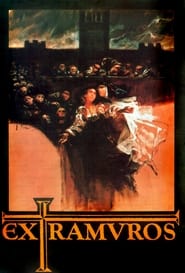 This 1985 Spanish film reveals one of...
This 1985 Spanish film reveals one of...Beyond the Walls 1985
This 1985 Spanish film reveals one of the many terrible aspects of 16th century Spain, still plagued by the radical Christian Inquisition, one of a plethora of difficulties Spaniards faced at the time. Spanish super star Carmen Maura plays a nun who agrees to a selfless scam, a fake stigmata, only to avoid separation from her lover, another nun. It's a serious and passionate work, highlighting the theme of outspoken women-against-repression, seen in other good gay and lesbian films. This is not a lesbian "Nun sense" or another "Dark Habits" (by Almodovar, which also starred Carmen Maura, and also set in a Spanish convent, with some lesbian nuns). Perhaps, best of all, 'Extramuros' is realistic and frank. It isn't shy about its characters' sexuality. Their sexuality, and the film as a whole are genuine.
 A serpent created by radioactivity threatens...
A serpent created by radioactivity threatens...The Sea Serpent 1985
A serpent, created by radioactivity, threatens a Spanish coastal town.
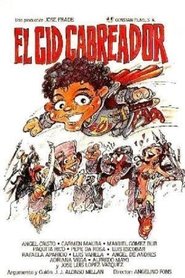 Rodrigo Daz de Vivar Mio Cid...
Rodrigo Daz de Vivar Mio Cid...The Angry Cid 1983
Rodrigo Díaz de Vivar, “Mio Cid”, is in love with Jimena, but the Count of Oviedo, his father, challenges him to a duel and is killed. He before him curses Rodrigo, that if he marries Jimena, he will lose his manly faculties. And, in fact, when he gets married, Rodrigo becomes effeminate.
 A female lawyer passionately defends criminals...
A female lawyer passionately defends criminals...Hunting Ground 1983
A female lawyer passionately defends criminals, believing that everyone deserves a second chance. But her latest defendants have no qualms about making her their next victim.
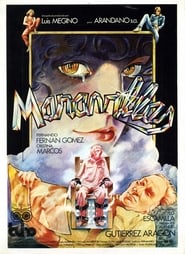 A young Catholic girl takes viewers...
A young Catholic girl takes viewers...Maravillas 1981
A young Catholic girl takes viewers through a changing Spanish political and social landscape as she develops from her confirmation day to adulthood. Her first experience with the real Spain comes when her Jewish godfathers cannot come to her confirmation. One of the godfathers, using a ring, poses an early challenge to her innocence that puts her in danger. He later returns, indirectly introducing her to a new boyfriend. If he is one of the symbols for Jewish life under Franco, or for a Judeo-Christian interaction, that interaction is complex. The young woman encounters different lovers as she grows into adulthood, but at the same time she is burdened with financially supporting her father and his own rather decadent lifestyle. Again, this difference in generations could be understood as a difference between the "new" and "old" Spain; it is up to the viewers to interpret the story elements as they decide.
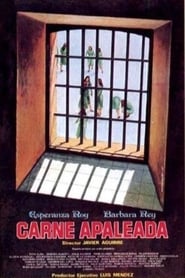 Berta Tota Alba has entered once...
Berta Tota Alba has entered once...Battered Flesh 1978
Berta (Tota Alba) has entered, once again, in prison accused of fraud. From the first moment she steps in the jail, she becomes the toy of all the veteran inmates. The number of conflicts in which she is immersed causes her to be transferred several times from penitentiary. In all of them will live some experience that will change her life; she will know love, hate, despair, etc.

 A prison in Valencia hosts an...
A prison in Valencia hosts an...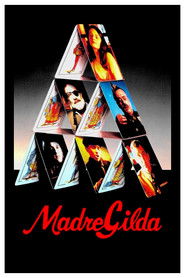 Madrid Spain On Monday December 22 1947 Charles...
Madrid Spain On Monday December 22 1947 Charles...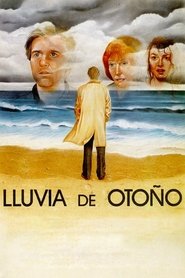 A writer named Daniel is going...
A writer named Daniel is going...
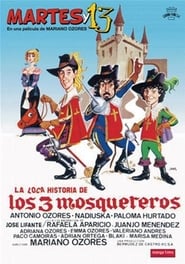
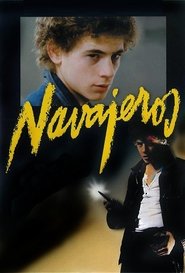 A chronicle of the life of...
A chronicle of the life of... The life of Juan de Dios...
The life of Juan de Dios...